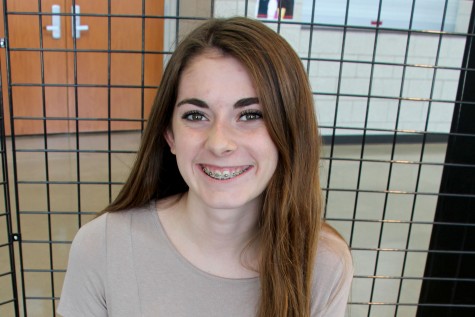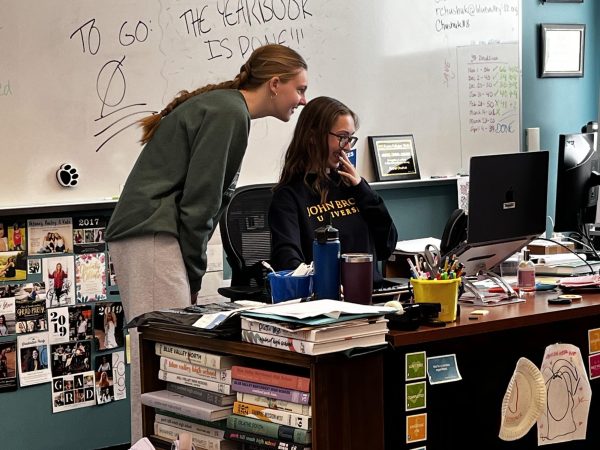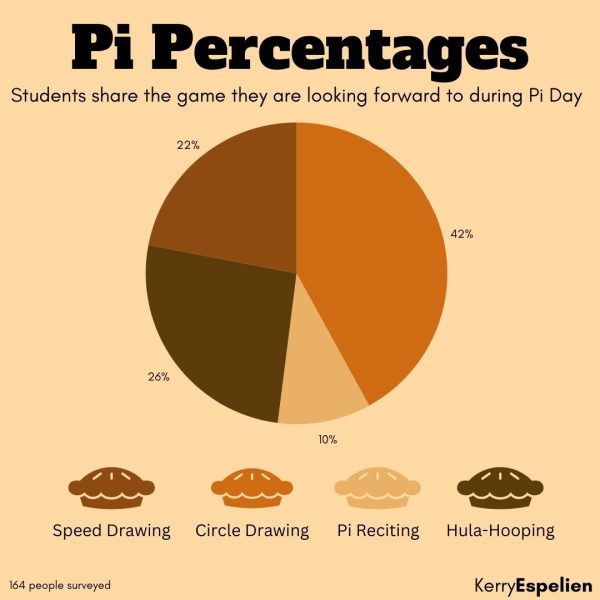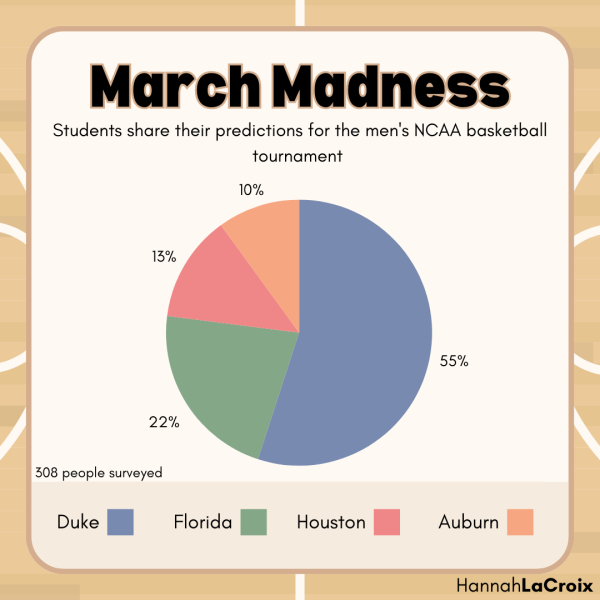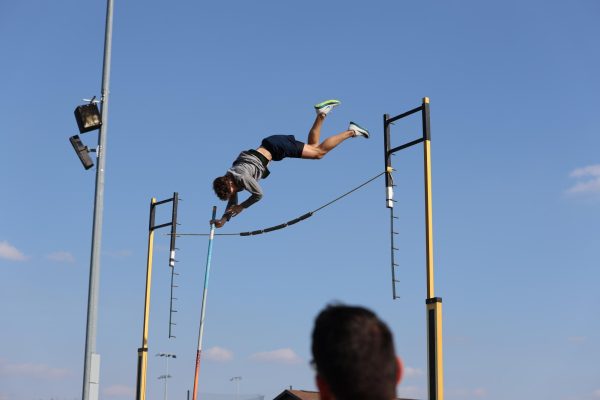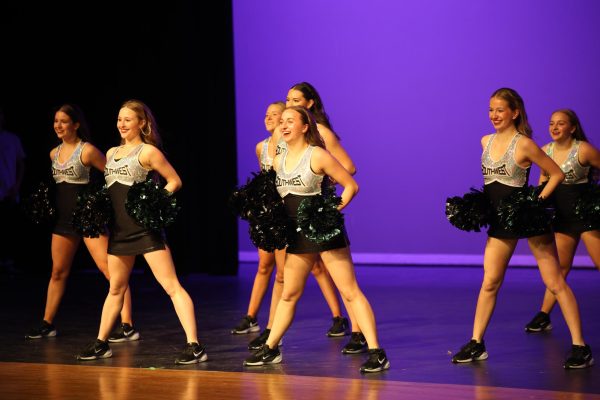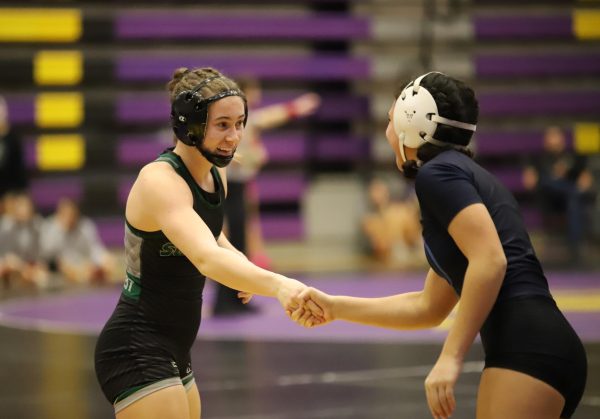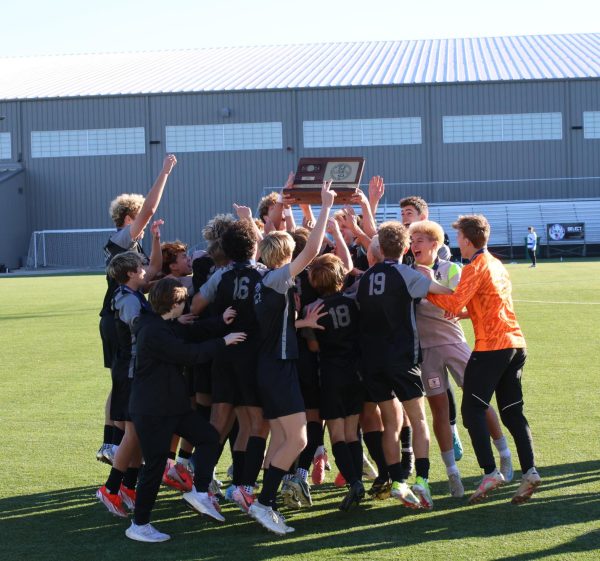Q&A with athletic trainer Christopher Poskey
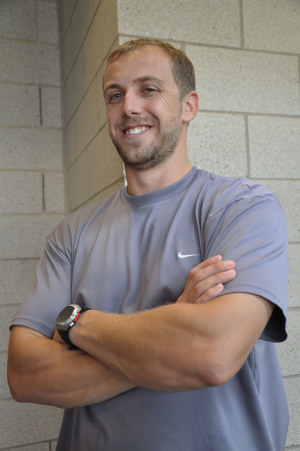
Athletic trainer Christopher Poskey
It’s no secret that Blue Valley Southwest has some talented athletes this year; but with talent comes caution as well. These athletes need to make sure that nothing interferes with their ability to compete. Injuries have always been the main hindrance when it comes to playing sports. With the departure of a former, vital member of staff comes a new addition to the southwest crew. Athletic trainer Christopher Poskey is game for anything this year.
Q: What sports did you play in high school?
A: In high school, I played football, basketball and I ran track.
Q: Where did you go to college?
A: I went to the University of Kansas. All of my contact hours from my bachelor’s degree were at the University of Kansas with the football team, the softball team and the track team over the course of two years. I did some graduate work at the University of Oregon with the track team, the football team and the wrestling team.
Q: Tell me about your family.
A: My wife and I have twins, Charlotte and Layla, that are 16 months old – cutest little girls you’ll ever see.
Q: What are your goals for Southwest this school year?
A: Keep kids as injury free as I can and allow them to perform as well as they can without having to worry about being injured – that they can come see me and know that I want to get them healthy fast.
Q: Do you have any other jobs?
A: The only other thing I do is not even related to athletic training is I am a Cross-Fit coach.
Q: What happens in the training room?
A: This is the room where if somebody is hurt, somebody needs to get ready for practice, it’s where they come. We will do an evaluation on an injury, treatment on an injury – any pre-practice things that they need to do, whether it be heating a muscle, stretching, rolling out, using a foam roller. They can come in here and get themselves ready for a practice or competition. Afterwards, coming in for ice, coming in for any any injuries that they had during practice, or something that happened during practice, coming in and getting evaluated – just treatments and rehabs as injuries progress throughout the season.
Q: What is the process throughout college to becoming an athletic trainer?
A: To become an athletic trainer, you have to go to an accredited athletic training education program. There are multiple, multiple throughout the United States at this point. To do that you have to get… contact hours with a rotation of sports and different experiences, passing classes, and then there’s a board of certification test that everybody has to take. That used to be a weekend you had to go take three parts of a test. Now it’s all online at a testing center; you can do it anywhere across the United States. You pass the test, you become a certified athletic trainer, and then every state is different based on becoming licensed versus registered. The state of Kansas has a licence that you need to have in order to practice, and by practice it means that I have to be supervised by a doctor. I have a practice protocol that a doctor has to sign off on that says all the things I can versus can’t do.
Q: What is the biggest issue facing athletic trainers today?
A: As far as injury wise, the big one has always been concussions. As a profession, it’s just being confused with personal trainers versus athletic trainers. A lot of people say “trainer”; they just automatically think personal trainer versus athletic trainer. In either the NBA, NFL, MLB, a lot of them have started using the term “athletic trainer”, but still the general public just thinks trainer, and they think personal trainer and not athletic trainer, who has this advanced degree who can do a lot.
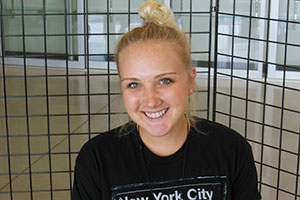
Ellie is a junior and a first-year staffer for the Standard, and is constantly looking for a new adventure. Her hobbies include going on road trips with...


